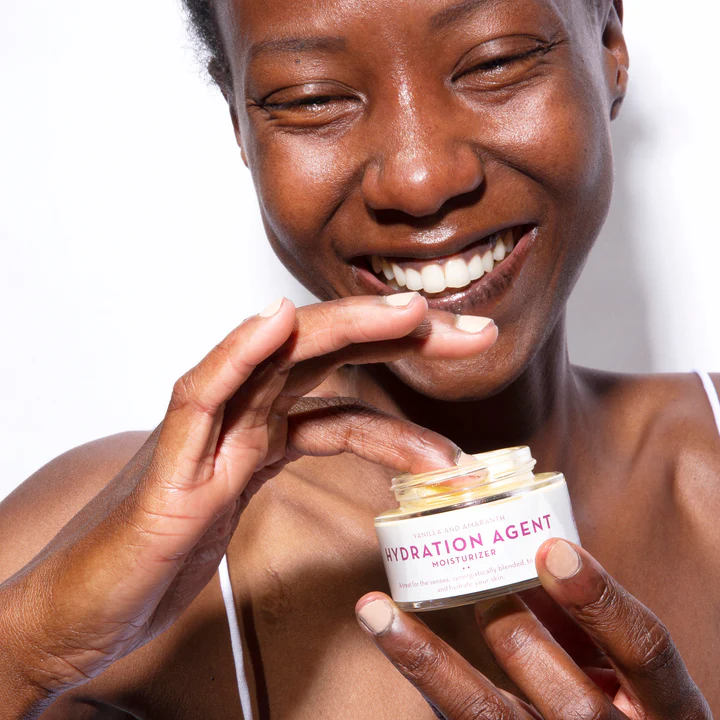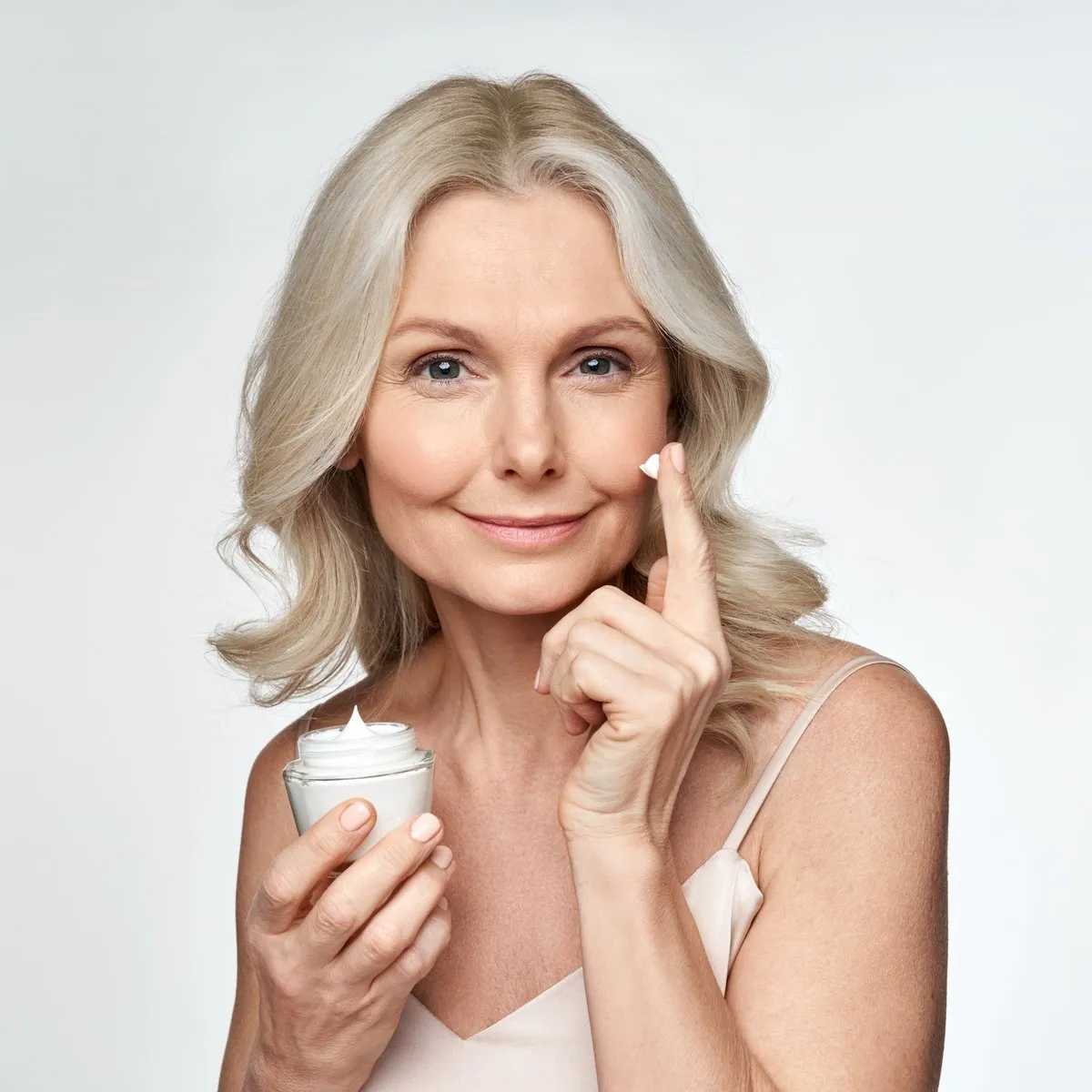
Best Face Cream for Sensitive Skin: Nurturing Your Complexion
Understanding Sensitive Skin: The Delicate Balance
Sensitive skin requires special care and attention. This skin type often reacts to various environmental factors, products, or ingredients. Common symptoms include redness, itching, burning, and dryness. Sensitive skin can result from genetics, environmental factors, or underlying skin conditions. Many people with sensitive skin struggle to find suitable skincare products. The right face cream can make a significant difference in managing sensitive skin. It helps maintain the skin’s protective barrier and soothes irritation. Choosing the best face cream for sensitive skin involves understanding key ingredients and formulations.
Gentle, fragrance-free products often work best for sensitive skin types. Hypoallergenic formulas reduce the risk of adverse reactions. Additionally, products with minimal ingredients can help identify potential triggers. Patch testing new products is crucial for those with sensitive skin. This practice helps prevent widespread reactions to new skincare items. By understanding the unique needs of sensitive skin, individuals can make informed choices about their skincare routine. The goal is to find products that nourish and protect without causing irritation or discomfort.

Key Ingredients to Look For: Soothing and Nourishing Agents
When selecting face cream for sensitive skin, certain ingredients stand out for their gentle, soothing properties. Aloe vera tops the list with its calming and hydrating effects. This natural ingredient helps reduce inflammation and redness. Chamomile extract offers similar benefits, providing a soothing effect on irritated skin. Hyaluronic acid serves as an excellent hydrator, attracting moisture without irritating sensitive skin. Glycerin, another hydrating ingredient, helps maintain skin moisture without clogging pores. Ceramides play a crucial role in strengthening the skin’s barrier function.
These lipids help protect sensitive skin from environmental stressors. Niacinamide, a form of vitamin B3, can improve skin barrier function and reduce redness. Antioxidants like vitamin E protect sensitive skin from free radical damage. Natural oils such as jojoba or sunflower seed oil provide gentle moisturization. These oils closely resemble the skin’s natural sebum, making them less likely to cause irritation. Ingredients like colloidal oatmeal offer anti-inflammatory benefits, helping to calm sensitive skin. By focusing on these gentle, nourishing ingredients, individuals with sensitive skin can find face creams that support their skin’s health without causing adverse reactions.
Ingredients to Avoid: Common Irritants for Sensitive Skin
While certain ingredients benefit sensitive skin, others can trigger irritation or allergic reactions. Fragrances, both synthetic and natural, often cause problems for sensitive skin types. Even products labeled “unscented” may contain masking fragrances, so opt for truly fragrance-free options. Alcohol-based ingredients can dry out and irritate sensitive skin. Look for alcohol-free or low-alcohol formulations. Essential oils, despite their natural origins, can be too potent for sensitive skin. Chemical sunscreens might cause reactions, so mineral-based sun protection is often preferred.
Harsh exfoliants like glycolic acid or rough physical scrubs can damage sensitive skin. Instead, choose gentle chemical exfoliants like lactic acid, if tolerated. Preservatives such as parabens or formaldehyde-releasing agents may irritate some individuals. Sulfates, commonly found in cleansers, can strip the skin of natural oils. Avoid face creams that contain these harsh cleansing agents. Certain plant extracts, while beneficial for some, might irritate sensitive skin. Always check ingredient lists carefully and be aware of personal triggers. By avoiding these common irritants, those with sensitive skin can reduce the risk of adverse reactions to face creams.

Top Face Creams for Sensitive Skin: Gentle Formulations
Several face creams stand out for their gentle formulations suitable for sensitive skin. Cetaphil Moisturizing Cream offers intense hydration without irritation. Its fragrance-free, non-comedogenic formula suits even the most sensitive skin types. Vanicream Moisturizing Skin Cream provides effective moisturization with minimal ingredients. This cream is free from common irritants, making it ideal for sensitive skin. La Roche-Posay Toleriane Double Repair Face Moisturizer contains ceramides and niacinamide. These ingredients help repair and protect the skin barrier.
Avène Skin Recovery Cream uses thermal spring water to soothe and calm sensitive skin. Its minimalist formula reduces the risk of irritation. First Aid Beauty Ultra Repair Cream offers intense hydration with colloidal oatmeal. This ingredient helps relieve itching and irritation associated with sensitive skin. Neutrogena Oil-Free Moisture for Sensitive Skin provides lightweight hydration. Its oil-free formula suits those prone to breakouts. Aveeno Calm + Restore Oat Gel Moisturizer offers a gentle, cooling effect. The oat-based formula helps soothe and nourish sensitive skin. These face creams have gained popularity among those with sensitive skin for their gentle yet effective formulations.
Day Creams vs. Night Creams: Tailoring Your Routine
Best face cream for sensitive skin benefits from different face creams for day and night use. Day creams focus on protection from environmental stressors. They often contain SPF to shield sensitive skin from harmful UV rays. Lightweight formulations work well under makeup for daytime use. Look for day creams with antioxidants to combat free radical damage. Night creams, on the other hand, concentrate on repair and regeneration. These creams often have richer textures to provide intense hydration overnight. Some night creams contain gentle active ingredients to support skin renewal.
Retinol alternatives like bakuchiol suit sensitive skin for nighttime use. Night creams may also include higher concentrations of ceramides or fatty acids. These ingredients help strengthen the skin barrier while you sleep. For sensitive skin, both day and night creams should avoid fragrances and harsh chemicals. Consistency in using appropriate creams for each time of day enhances skin health. By tailoring face creams to day and night needs, those with sensitive skin can maximize the benefits of their skincare routine.

Application Techniques: Gentle Care for Sensitive Skin
Proper application of face creams is crucial for sensitive skin care. Always start with clean hands to avoid introducing bacteria to the skin. Gently cleanse the face with lukewarm water and a mild, sensitive skin-friendly cleanser. Pat the skin dry with a soft towel, avoiding harsh rubbing. Apply face cream to slightly damp skin to lock in moisture. Use upward, gentle motions to apply the cream without pulling on the skin. Avoid applying too much pressure, which can irritate sensitive skin.
For extremely sensitive areas, try patting the cream instead of rubbing. Allow each skincare product to absorb fully before applying the next. This practice prevents product pilling and ensures maximum efficacy. When trying a new face cream, start with a small amount to test for reactions. Gradually increase usage as tolerated by the skin. For daytime application, follow the face cream with a gentle, mineral-based sunscreen. At night, allow time for the face cream to absorb before going to bed. These gentle application techniques help maximize the benefits of face creams while minimizing irritation for sensitive skin.
DIY Face Creams: Natural Solutions for Sensitive Skin
While commercial products offer convenient solutions, some individuals prefer DIY face creams for sensitive skin. These homemade options allow for complete control over ingredients. A simple oatmeal and honey mask can soothe and hydrate sensitive skin. Mix colloidal oatmeal with raw honey and apply for 15-20 minutes before rinsing. Aloe vera gel combined with a few drops of jojoba oil creates a light, soothing moisturizer. This mixture provides hydration without heaviness. A cucumber and yogurt mask offers cooling relief for irritated sensitive skin.
Blend cucumber and plain yogurt, apply to the face, and rinse after 10 minutes. For a nourishing night cream, mix shea butter with a few drops of chamomile essential oil. This combination provides intense moisture and calming benefits. A green tea and rice water toner can help balance sensitive skin pH levels. Brew green tea, mix with rice water, and apply with a cotton pad. When creating DIY face creams, always patch test new mixtures. Use fresh, high-quality ingredients to minimize the risk of irritation. While DIY options can be effective, they lack the stability and preservation of commercial products. Therefore, make small batches and use them within a short time frame.
Lifestyle Factors: Supporting Sensitive Skin Health
Best face cream for sensitive skin play a crucial role, but lifestyle factors also impact sensitive skin health. A balanced diet rich in anti-inflammatory foods supports skin health from within. Foods high in omega-3 fatty acids, like salmon and walnuts, can help reduce skin inflammation. Staying hydrated by drinking plenty of water helps maintain skin moisture levels. Limiting alcohol and caffeine intake can prevent skin dehydration. Managing stress through relaxation techniques or exercise benefits sensitive skin. Stress can trigger flare-ups in many skin conditions associated with sensitivity.
Protecting skin from extreme temperatures and harsh weather conditions is crucial. Use protective clothing and avoid prolonged sun exposure. Choosing gentle, hypoallergenic laundry detergents prevents irritation from fabrics. Avoiding hot showers and opting for lukewarm water protects sensitive skin’s natural oils. Regular exercise promotes healthy blood circulation, benefiting overall skin health. However, always cleanse the skin after sweating to prevent irritation. By combining these lifestyle factors with appropriate face creams, individuals can significantly improve their sensitive skin’s health and appearance.

When to Consult a Dermatologist: Professional Care for Sensitive Skin
While many can manage sensitive skin with over-the-counter face creams, some situations require professional help. Persistent redness, itching, or burning despite using gentle products warrants a dermatologist visit. Sudden changes in skin sensitivity or new reactions to previously tolerated products are concerning. Dermatologists can perform patch tests to identify specific allergens or irritants. They may diagnose underlying skin conditions contributing to sensitivity. Conditions like rosacea, eczema, or contact dermatitis often require prescription treatments. Dermatologists can recommend medical-grade skincare products suited for individual needs.
They might suggest treatments like light therapy for certain sensitive skin conditions. In some cases, oral medications may be necessary to manage severe sensitivity. Regular check-ups with a dermatologist help monitor skin health and adjust treatments as needed. They can also provide guidance on incorporating active ingredients safely into sensitive skin routines. Professional advice ensures that individuals with sensitive skin receive comprehensive, tailored care. By knowing when to seek professional help, those with sensitive skin can effectively manage their condition and maintain healthy, comfortable skin.
Future Trends: Innovations in Sensitive Skin Care
The field of sensitive skin care continues to evolve with new innovations and technologies. Personalized skincare formulations based on individual skin analysis are gaining popularity. These custom-blended face creams address specific sensitive skin concerns. Microbiome-friendly skincare focuses on maintaining a healthy skin bacterial balance. This approach can help strengthen the skin barrier and reduce sensitivity. Nanotechnology enables the development of more effective, gentle delivery systems for active ingredients.
These advanced formulations can provide benefits with lower risks of irritation. Plant stem cell technology offers new possibilities for sensitive skin care. These ingredients can provide potent benefits without the irritation potential of traditional actives. Bioengineered ingredients designed to mimic skin’s natural components show promise. These synthetic alternatives can be gentler than their natural counterparts. Wearable devices that monitor skin conditions in real-time are emerging. This technology could help individuals with sensitive skin better manage their skincare routines. Sustainability in skincare is also influencing product development for sensitive skin. Brands are focusing on eco-friendly, gentle formulations with minimal environmental impact. As research continues, the future of sensitive skin care looks bright with more effective, tailored solutions on the horizon.

